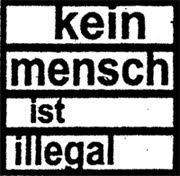Filme von geflüchteten Filmemacher*innen
organisiert von w2eu, dem Infomobile Griechenland
und dem Wohnschiffprojekt Altona e.V.
und dem Wohnschiffprojekt Altona e.V.
ALTE SCHULE Niendorf, Tibarg 34 (Hinterhof)
Seit mehr als zehn Jahren reisen wir regelmäßig nach Lesbos und auch an andere EU-Außengrenzen. Wir, das ist das Netzwerk Welcome to Europe, w2eu.
Bei unseren Reisen hatten wir das Glück geflüchtete Filmemacher*innen kennenzulernen. Sie erzählen mit ihren Kameras ihre eigene Geschichte in ihrer prekären und unmenschlichen Situation und damit auch von ihren Kämpfen und ihrem Mut.
5.8. ab 21Uhrzeigen wir den Film MIDNIGHT TRAVELER von Hassan Fazili und Familie. Die Familie hat drei Jahre lang ihre Flucht aus Afghanistan dokumentiert und daraus einen sehr beeindruckenden Film erstellt. Der Film ist mit englischen Untertiteln.
Hassan Fazili und seine Familie
werden anwesend sein.
werden anwesend sein.
6.8. ab 21 Uhr zeigen wir die FilmeTHE REMAINS- nach der ODYSSEE von Nathalie Borgers. In diesem Film geht es um das Schicksal von Geflüchteten, denen die Flucht über das Mittelmeer nicht geglückt ist und um die unermesslichen seelischen Wunden der Hinterbliebenen.
In einem zweiten Teil zeigen wir eine kurze Dokumentation über das w2eu MEMORIAL in Thermi, 2019,Lesbos. In Thermi haben wir vor 6 Jahren ein Memorial für die Toten an den europäischen Grenzen errichtet und fahren dort jedes Jahr wieder zum Gedenken an die Verstorbenen hin.
Zu Gast an diesem Abend ist Muhammad al Kashef.
7.8. ab 21 Uhr zeigen wir A TENT OF FRIENDSHIP von Sayed Ahmadi Ebrahimi und noch andere KURZFILME von jungen Filmemacher*innen, die noch immer in Griechenland ausharren und ihre Situation dokumentiert haben. Manchmal auf lustige Art und Weise, aber auch mal als Dokumentation einer Situation.
Via Internet werden wir versuchen zwei der Filmemacher*innen zu uns nach Hamburg zu holen, um mit ihnen ins Gespräch zu kommen. Auch werden wir einen kurzen Abriss über die aktuelle Situation in Griechenland geben.
Wir freuen uns sehr mit diesen Filmen ihre Geschichten, ihren Mut und ihre Kraft nach Hamburg bringen zu können.
w2eu Hamburg
Wir danken dem Zentrum für Mission und Ökumene und der Stiftung NUE für die finanzielle Unterstützung, der ALTEN SCHULE Niendorf und dem Verein Wir für Niendorf, für den Ort und der Stadtteilinitiative Hamm für die Leinwand und Technik.










